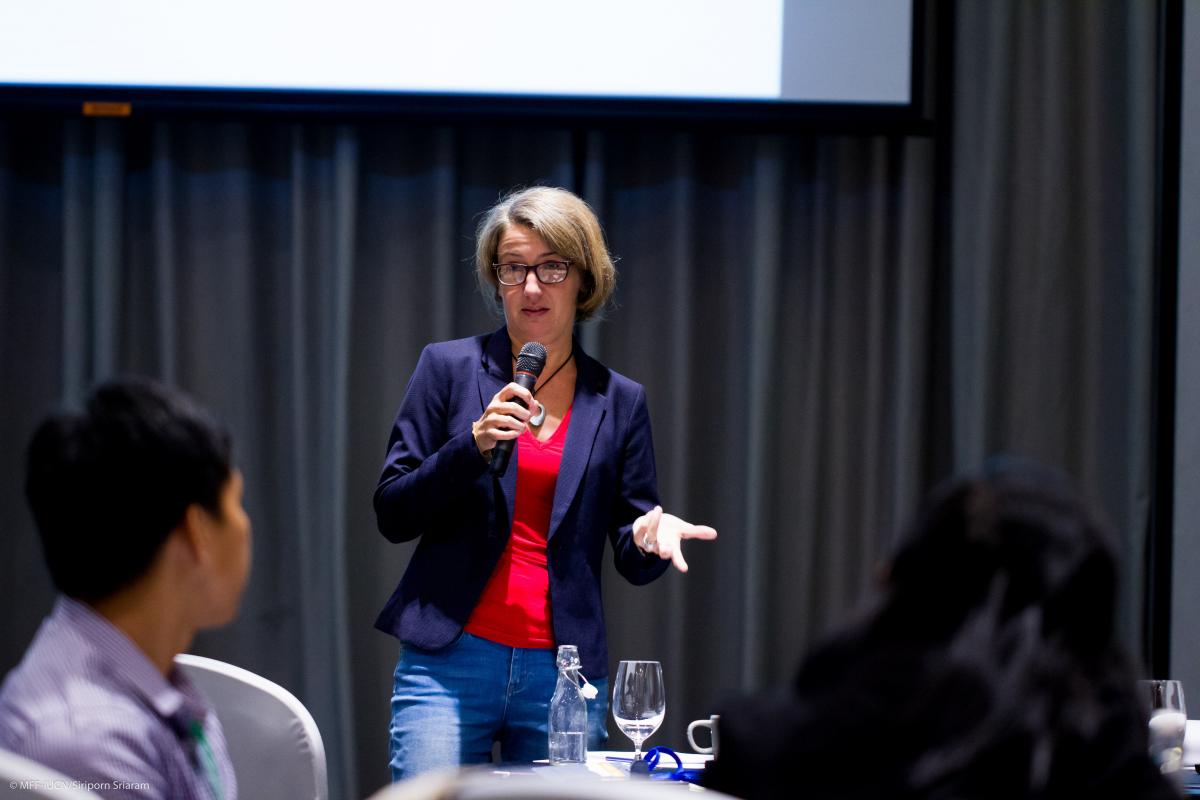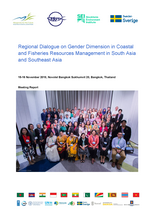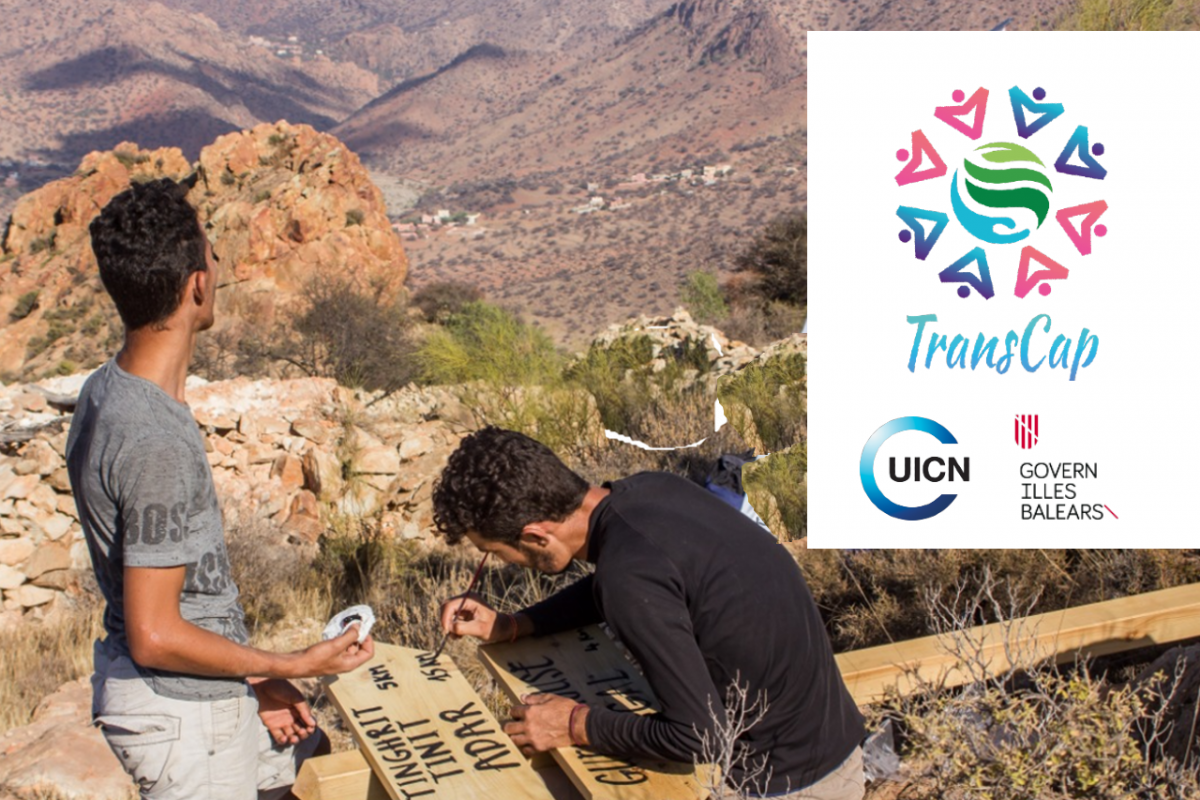Southeast Asia must integrate gender considerations in coastal resource management - Regional Gender Study
A Regional Gender Study completed in 2018 has shown that many countries in Southeast Asia are not adequately integrating gender considerations into their national policies for fisheries and coastal resource management. The results of the study, conducted by Mangroves for the Future (MFF), the Stockholm Environment Institute (SEI), and the Southeast Asian Fisheries Development Center (SEAFDEC), were presented at a workshop from 15 to 16 November in Bangkok.

Andreea Raluca Torre, Senior Gender Researcher at SEI, presents the key findings of the Regional Gender Study
Photo: © Siriporn Sriaram - IUCN/MFF
The workshop convened 60 policymakers and practitioners from national fisheries, forestry, women’s affairs and development agencies; international and regional organisations; and academia to reflect on the key findings of the Regional Gender Study and related knowledge products. It also allowed them to discuss the state of affairs within their countries and develop strategies to address the gaps the study revealed.
The workshop was opened by Aban Marker Kabraji, IUCN Asia Regional Director and Director of the IUCN Regional Hub for Asia-Oceania, who highlighted the need for development partners to continue identifying and breaking down the obstacles to women's equal and equitable participation in coastal and fisheries resources management. She was followed by Bernadette P. Resurección, a Senior Research Fellow at SEI, who emphasised that “sustainable development cannot be achieved without the talent, knowledge and experience of half the population caring for marine and coastal resources at all levels of decision-making.”
Andreea Raluca Torre from SEI presented the methodology and approach to the Regional Gender Study, and outlined the key findings: that women’s contributions are often undervalued and that their participation in decision-making remains negligible at all levels. This is the case despite women’s diverse roles and responsibilities in the fisheries and coastal resources management sector, and despite the difference from men in how they interact with resources. These trends indicate that more needs to be done to identify and break down the obstacles to equal and equitable participation of women in coastal and fisheries resources management.
 Group photo of Regional Gender Study Dialogue participants
Photo: © Siriporn Sriaram - IUCN/MFF
Group photo of Regional Gender Study Dialogue participants
Photo: © Siriporn Sriaram - IUCN/MFF
Clara Park and Jennifer Gee from the UN Food and Agriculture Organization (FAO) presented their work on mainstreaming gender in the FAO Voluntary Guidelines for Securing Sustainable Small-Scale Fisheries in the Context of Food Security and Poverty Eradication. One of the guiding principles of the document is that “gender equality and equity is fundamental to any development,” and Section 8 outlines the need for parties to the guideline to integrate gender considerations into their work.
Nisha Onta from Women Organizing Change in Agricultural and Natural Resource Management (WOCAN) gave an overview of the W+ standard, which WOCAN created to measure the impact of women’s empowerment initiatives and evaluate gender outcomes in projects.
“The study provides an analytical overview of the institutional and policy landscape at multiple scales, as well as a critical gender analysis within the coastal and small-scale fisheries sector in South and Southeast Asia,” said Maeve Nightingale, Capacity Development Manager for MFF. “It also identifies opportunities to mainstream gender in fisheries and coastal resource management by promoting gender-responsive policies, and will do the same for coastal and fisheries development programmes.” The final Regional Gender Study will incorporate feedback and insights from the Regional Gender Dialogue and be launched shortly thereafter.
Click here to read the workshop report.
Mangroves for the Future (MFF) is a partnership-based regional initiative which promotes investment in coastal ecosystem conservation for sustainable development. MFF focuses on the role that healthy, well-managed coastal ecosystems play in building the resilience of ecosystem-dependent coastal communities in Bangladesh, Cambodia, India, Indonesia, Maldives, Myanmar, Pakistan, Seychelles, Sri Lanka, Thailand and Viet Nam. The initiative uses mangroves as a flagship ecosystem, but MFF is inclusive of all types of coastal ecosystem, such as coral reefs, estuaries, lagoons, sandy beaches, sea grasses and wetlands. MFF is co-chaired by IUCN and UNDP, and is funded by Danida, Norad, and Sida and the Royal Norwegian Embassy in Thailand.




